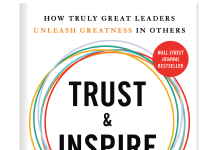
Congratulations! Your company is ready to expand into the exciting world of digital marketing.
Leadership has approved a budget, expectations have been set, and a vision is shaping. As you build your RFP and begin your matchmaking exercise, the next question to ask yourself is this: How will you attract the right agency for your company and repel potential imposters? Rest assured, by asking agencies the following questions, the cream of the crop will rise to the top, and you can move forward confidently.
What is your view of attribution?
In marketing, everyone wants to take credit for your leads. It’s just easier to do online. Here’s an example: Let’s say a customer clicks on a Google Ads link, visits your website, and then leaves before purchasing. Now they see a remarketing ad follow them across the display network; they return to the site (either by clicking or on their own via view-through) but still don’t buy. Finally, we targeted them for a third time on Facebook. The customer clicks and buys.
The business owner now wants to know who was responsible for the purchase. The correct answer is all three of the paid sources contributed to the lead and should be issued a partial credit. Use your media partners as the source of truth. It will show that over a 30-day window, a full conversion or transaction should be attributed to Google, your remarketing partner, and Facebook, as they all had a click that eventually resulted in a purchase.
However, that would not help you identify the total cost-per-click, or more importantly, the cost per sale, as all three sources were responsible for generating that single transaction. Ensure your agency is tracking everything (ask them how they are measuring and monitoring G4 key events) and with the same or equal attribution timing (24-hour view-through, 30-day click conversions, etc.).
I recommend weighing the first click with 50 percent of the value. So, in our example above, Google Ads would get 50 percent of the credit, then 25 percent would go equally to remarketing and Facebook. This is important because online efforts work “together.” Understanding this customer journey is critical to measuring results and planning for future budget allocation.
How can you prove to us that impressions are delivered and clicks are from humans vs. bots?
The bottom line is that your agency MUST be able to measure and report on these metrics. If they can’t or don’t know how, it’s time to say aloha and move on to the next applicant. The right agency should be very familiar with third-party pixels to validate impressions and viewability rate targets, i.e., how long was the ad seen on the page as the customer scrolled or watched the video before being able to skip.
They should be able to recommend ad exchange partners with oversight and can report on invalid traffic (IVT), protecting your company’s budget and ensuring results. Remember, Google, Microsoft, and Facebook are among the most significant concerns regarding fake traffic as they deploy bots to click on their ads and inflate revenue. If your potential agency “thinks” they’re the source of truth, they drank the Kool-Aid and are not your dream match. Tools like ClickCease for bot protection are a must, and the right agency will be providing recommendations along the purchase funnel with both short-term and long-term goals in mind.
Can we see examples?
Ask your agency what marketing they perform on their own sites or what clients they suggest you visit to experience first-hand their full-funnel remarketing, customer drip experience, etc. I’m always amazed at how many clients think they have remarketing in place but have never seen their ad. You must always see it to believe it!
How do you charge?
Most agencies believe in media commissions. While this is normal for traditional advertising, I strongly believe in a retainer fee to manage online marketing. Why? Advertising rates are not fixed; they fluctuate based on real-time bidding across the ad exchange.
This means that as time goes on if your agency is doing its job of optimizing your accounts, the result should be that you are learning more and spending less over time, resulting in a higher overall ROI. If the agency attaches a digital media commission, what is their incentive to help you spend less?
How will you allocate my budget?
A clear red flag is when your digital agency recommends breaking your annual budget evenly by month. For example, you have $60,000, and they allocate $5,000 per month.
While this might seem like a good idea, most businesses have seasonality. So, the right answer is to review your goals and historical data and then allocate the funds accordingly. If you’re in retail, you’ll need to spend significantly more in Q4 to win those holiday sales.
The right agency will ask questions to help you determine how to spend your budget to achieve the most outstanding results and recommend that you be flexible,e as online demand can change quickly. Commit to a budget with quarterly targets and let your agency spend the funds fluidly vs. rigidly.
Having posed these five questions, you’re ready to spot a fraud and find the perfect match.
Always remember that marketing and brand building take time and are a team effort. Stopping and starting advertising is ineffective; you must commit to the process. Think of it like this: If you’re filling a bucket with water, it will fill up faster with more water pressure, right? If you reduce the water to a trickle, the bucket will fill up eventually, but it will take much longer.
The same is valid with building share of mind, so pick a comfortable pressure and keep it on until you fill the bucket and can decide what’s next.




